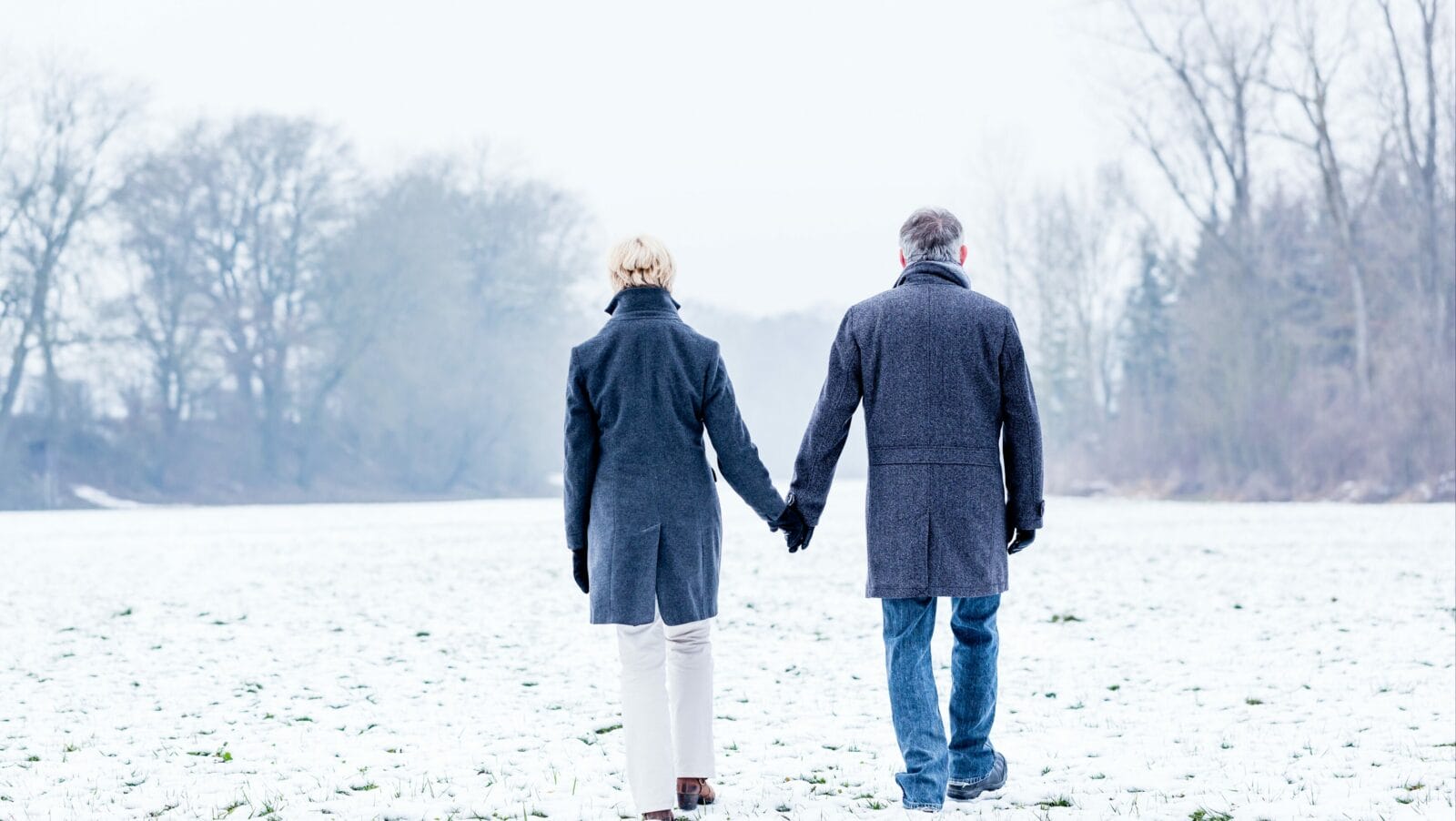Winter can bring unique safety challenges for seniors. It can be difficult for senior citizens to keep warm, and as you get older, the likelihood of falls increases, especially when winter brings slippery walking conditions. Those falls can also be more dangerous, due to a greater risk of breaking bones or other serious injuries. So, it’s clear that winter safety is very important for senior citizens. Read on to find out how to stay warm, avoid falls, and more winter safety tips for seniors so that you can enjoy all that winter has to offer.
Staying Warm
Feeling increasingly sensitive to cold is a common part of the aging process. Seniors have a thinner layer of subcutaneous fat, which means it’s harder to stay warm. Chronic conditions like diabetes can also play a role in lower body temperature. Since staying warm is key for your health and comfort, here are a few tips for seniors to stay warm in winter.
- Check your thermostat. It’s okay to turn the heat up, even if you’re on a budget. Learning thermostats like the Nest can help you save money while still staying warm.
- If your heating system isn’t able to keep you warm enough, consider using space heaters. Most are lightweight, portable, and can be carried from room to room. Or, just leave a space heater in the room you tend to hang out in most.
- Try an electric blanket! These plug-in blankets contain a hidden heating element to keep you extra cozy. An electric blanket can keep you warm both while you sleep, and during the day when you’re reading or watching TV.
- Dress in layers. Wearing thermal long-sleeved shirts and leggings underneath your clothes can go a long way to beating winter chill.
- Stay active. Doing at-home workouts is a great way to raise your body temperature. Just make sure you still wear enough clothing that you won’t feel chilled afterwards, when you cool back down.
- Drink warm beverages. Drinking warm things can really help raise your body temperature and make you feel warmer. Lean into the tea, coffee, and hot chocolate that becomes more appealing in winter. Remember to switch to decaf or herbal tea in the afternoon so you don’t stay up all night.
Staying Safe Outdoors in Winter for Seniors
The outdoors offers many physical and mental health benefits, but in winter getting outside gets a little more challenging. In climates with snow and ice, slippery steps and sidewalks can pose a serious risk for seniors. Here are some tips to stay safe out there.
- Wear shoes with appropriate traction. Check the bottoms of your shoes and look for rugged rubberized soles. Shoe chains are a good idea for the really dedicated hiker or outdoor walker. They work like tire chains to help you gain more traction on thick ice.
- Keep your outdoor walkways clear. Getting from the porch to the car is the most often-used walkway for most people, so do your best to keep it safe! Use salt or ice melt on walkways and especially on stairs, which become treacherous when icy or wet. Hire a local teen or service to shovel snow and remove leaves.
- Avoid unsafe driving conditions. Try not to drive in deep snow or ice, and just stay home if a storm is brewing. If you do drive in the snow, make sure you have snow tires and carry tire chains.
- If you’re outside or driving somewhere alone, especially during winter, make sure you carry a phone so you can call for help if you fall or become stuck. Don’t go outside of cell phone service alone.
Prevent Falls
Since falls are more common in winter, now is a great time to take some precautions to prevent falls indoors and out.
- Add grab bars near the toilet and in the shower or bath. These can be slippery spots year-round.
- Make sure any outdoor stairs have handrails to increase their safety.
- If you have a concrete porch or steps, consider applying a textured concrete paint or other anti-slip coating. Concrete and cement can become very slippery when wet or icy.
- Add grip strips to indoor stairs.
- Do balance exercises to maintain your muscle tone, so you will be stronger and more resilient in every season.
Prepare for Winter Emergencies
If you live in a place with very wet or snowy winters, it’s good to be prepared. Winter storms can cause power outages, and roads and highways can be closed due to flooding, snow and/or ice.
- Keep at least a week’s worth of food at home at all times. This way, if you can’t get to the store, you won’t have to worry about running out of food.
- Consider alternative heat options in case of a power outage. You may want to have a wood stove or generator so that you can handle freezing conditions if the power goes out.
- Don’t forget to store water at home! If you use city water, a power outage could mean you also don’t have water. Keep at least a few gallons of water on hand, just in case.
- If you rely on daily medications for your health, make sure you also have enough on hand to last at least a week. If you have a chronic condition like diabetes, this is doubly important–your life depends on it!
Be proactive about your health and safety this winter. Stellar Living hopes these winter safety tips for seniors are helpful. If you find yourself needing more help this time of year, consider senior living! Short-term stays and respite care are available in most communities. You won’t have to worry about unsafe outdoor conditions, driving, or access to medical care. You can’t put a price on the peace of mind senior living can offer, especially with the extra risks of winter.




